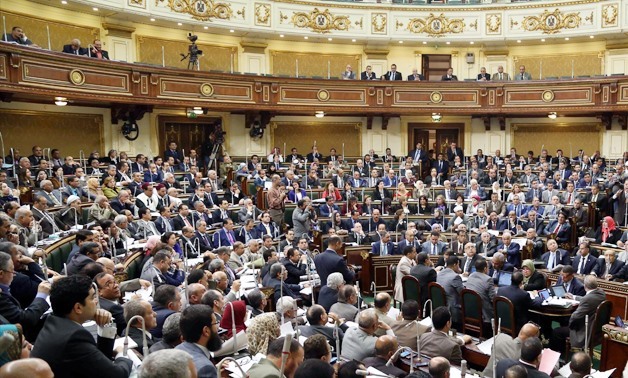
The House of Representatives- Archive
CAIRO – 5 May 2017: The Parliament approved all articles of a long-awaited investment law on Thursday after passing the last four articles that saw several debates and discussions.
Speaker of the Parliament Ali Abdel-Aal said that the law was approved by two-thirds of the parliament and that the final approval will be announced in the coming general session on Sunday.
The Parliament approved article 11 of the law which grants tax exemptions to investors up to 70 percent of the project’s investment costs.
The law divided investments areas nationwide into three sectors A, B and C; sector A includes areas that are in most need of development, identified by the State’s Central Agency for Public Mobilization and Statistics (CAPMAS) and an investment map, drawn up by the government, which will be announced in the executive regulations of the law.
Sector B includes the geographical areas that need to be developed and not mentioned in sector A.
Sector C includes the rest of areas nationwide, as put in the soon-to-be-announced investment map.
Investors in sector A will take tax exemptions up to 70 percent of investment costs, while investors in sectors B and C will receive exemptions of 40 percent and 30 percent respectively.
According to the new law, the government will return shares of the investment costs through offering monetary incentives for the projects until they reach the rate of return stipulated in the act.
An amendment to article 11 includes putting textile industries among investment projects in sector B.
Article 12 of the law stipulates that in order for the investors to receive the incentives in article 11, they should set up a new company. However, companies that were established 30 months prior to the issuance of the law’s executive regulations are exceptions, on condition that they did not start any investment activity.
In addition, these companies should be established within three years starting from the issuance of the law’s executive regulations, but the Prime Minister has the right to extend the term based on a demand by the relevant minister.
The companies should also follow a regular accounting system to obtain the incentives. If the company is working in different areas, it could benefit from the tax exemptions determined for each area.
The Parliament has further approved the return of the private free trade zones in article 31 of the law, and it agreed to discuss article 27 again, to include a paragraph that gives the relevant minister the right to request licenses for establishing technological zones.
The Parliament refused the government’s request to give the prime minister the right to issue the executive regulations and it insisted on what was agreed upon by the house’s Economic Committee that the investment minister is the one concerned with issuing the regulations.
Executive regulations should be put within 90 days following the approval of the law.
Comments
Leave a Comment